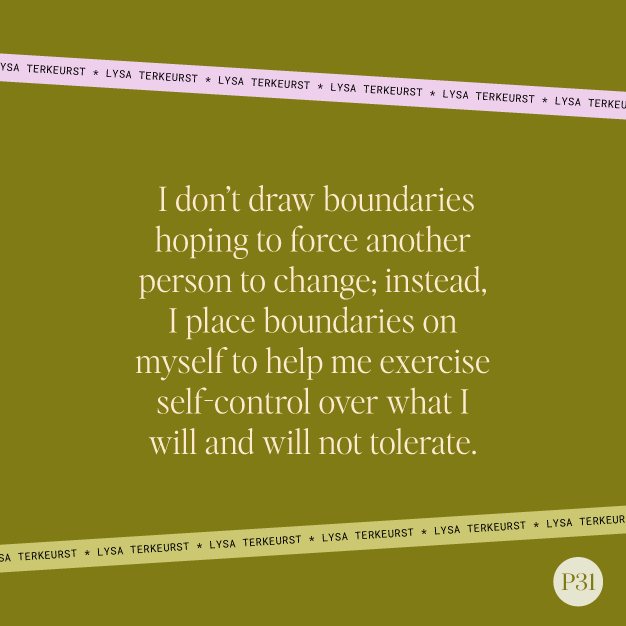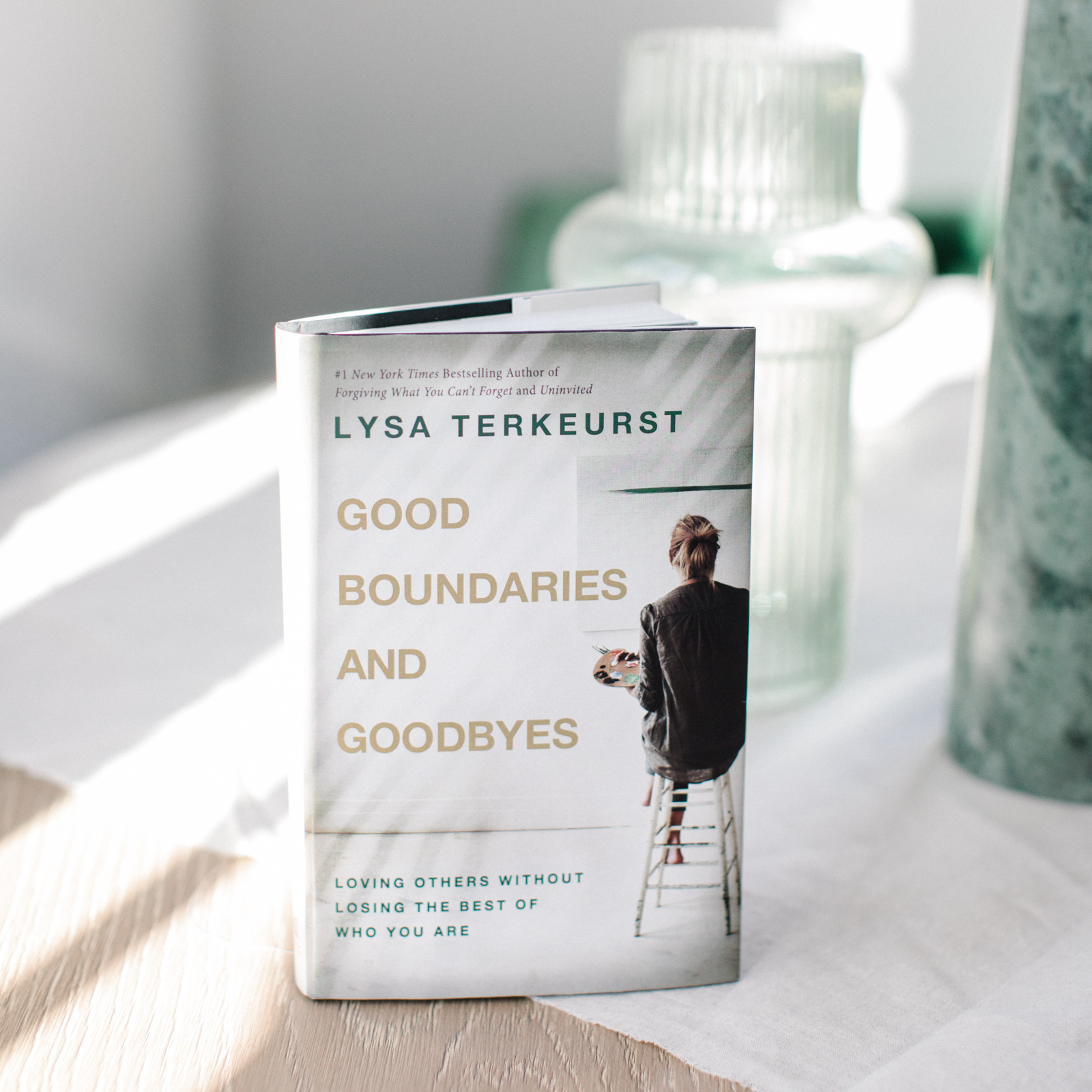
“Like a city whose walls are broken through is a person who lacks self-control.” Proverbs 25:28 (NIV)

I’ll never forget asking my counselor to help me process how I finally got to the place where I said this about a difficult relationship I was walking through: “No more. No more devastation. No more betrayal. No more being lied to. No more.”
I wondered if that was the moment I became broken. But he replied, “No, Lysa, that was the moment you declared you were healing.”
Sometimes “no more” means doing the work to fight for the relationship. By implementing good boundaries, each person can be held accountable to healthier relational patterns.
Sometimes “no more” means acknowledging the heartbreaking reality that the relationship is no longer sustainable or safe. Though this is really hard, wise counsel has helped me see there’s a big difference between difficulties that can be worked through and destructive patterns that are detrimental to our well-being.
Both dynamics require that we pursue healing. We need solid Truth from God’s Word to help, guide and direct us. Sometimes we may also need a godly professional counselor who is specifically trained to educate, comfort and challenge us.
I know what it feels like to be paralyzed by another person’s choices and not know what to do about it. In the past, I’ve been hesitant to draw boundaries both because it felt uncaring and because I didn’t have the confidence to know how to implement and communicate healthy parameters.
Now, I’ve discovered a better way to view boundaries. I don’t draw boundaries hoping to force another person to change in ways they may be unwilling to change or incapable of changing. Instead, I place boundaries on myself to help me exercise self-control over what I will and will not tolerate. Self-control is crucial so that I regulate my reactions and direct my efforts toward myself staying in a healthy place. Good boundaries are the only fighting chance I have for navigating relational challenges in a productive and healthy way.
If you’re in a “no more” kind of place, consider these questions about boundaries and how you might be able to apply this in your own life — beginning today. Remember, this assessment isn’t permission to be selfish and "peace out" on responsibilities. Instead this is meant to help us see where we may be losing self-control because we don’t have appropriate boundaries, like our key verse warns against: “Like a city whose walls are broken through is a person who lacks self-control” (Proverbs 25:28).
As you consider these questions, you may find it helpful to process them with a trusted godly mentor or Christian counselor. These questions to consider aren’t to further complicate our relational dynamics. Instead, these are meant to help identify where we are dancing with dysfunction.
Toxic realities in relationships will not tame themselves. We cannot ignore them into health. Nor can we badger them into a better place. We have to get honest about the hardships that are complicating and probably preventing the kind of health we not only want but need for some of our relationships to survive.
I’ve learned we can’t just “get over” our hurts — we have to work through them. And boundaries are a great way to start experiencing health in your own life. Let’s take this step together.
God, in order to consider areas in my life where I may need to implement some healthy boundaries, I will need Your help. Help me to process these decisions thoroughly, through the lens of wisdom and with godly counsel. I long to see health in all of my relationships, so help me get honest to see where any God-honoring boundaries could make this possible. In Jesus’ Name, Amen.
Want more therapeutic wisdom surrounding the topic of boundaries? Find practical next steps, powerful scriptures and timely guidance on hard relationship dynamics from Lysa TerKeurst and her personal counselor, Jim Cress, throughout the pages of Lysa’s new book, Good Boundaries and Goodbyes. Preorder the Proverbs 31-exclusive version here.

ENGAGE
Find real-life encouragement when you connect with Lysa TerKeurst here on Instagram.
Psalm 56:8, “Record my misery; list my tears on your scroll—are they not in your record?” (NIV)
As you begin to process the questions above and evaluate where in your life you need to implement boundaries, remember this: This may be hard, but you are not alone. You are seen by the God of the universe. He keeps track of your sorrows, collects your tears and has recorded each one in His book.
Share your thoughts and your story with us in the comments!
© 2022 by Lysa TerKeurst. All rights reserved.
Join the Conversation